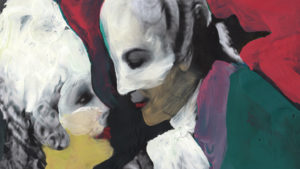
Opera Profile: The Last Mozart-Da Ponte Opera ‘Così Fan Tutte’
By David Salazar“Così fan tutte” is the third opera in the Mozart-Da Ponte trilogy, following “Le Nozze di Figaro” and “Don Giovanni.”
The opera had its premiere on Jan. 26, 1790, at the Burgtheater in Vienna, Austria. The work’s title is often translated into English as “Woman are like that,” undeniably a reference to the opera’s central theme that questions women’s fidelity.
Short Plot Summary
Don Alfonso challenges Ferrando and Guglielmo’s belief that their beloved fiancées Dorabella and Fiordiligi will forever be faithful. He bets them that the women will prove fickle.
Don Alfonso then tells the two girls that their men are about to be called off to war. The two men arrive, heart-broken to bid farewell.
Despina, the maid of the two girls, tells them to take new lovers. Two “Albanians” arrive, but they are Ferrando and Guglielmo in disguise. They try to win over the women but they prove difficult to conquer.
Despina joins in the fun with Alfonso. The Albanians promise to poison themselves if not given a chance to woo the girls. The drink “poison” and then pass out. A doctor, Despina in disguise, is able to revive them but the men demand a kiss from the two girls. They refuse but are urged on to give in.
Despina pushes the girls to give in to the “Albanians” and Dorabella confesses that she is tempted. They agree to flirt. Guglielmo and Dorabella pair off while Fiordiligi and Ferrando do the same. Dorabella gives in easily and hands Guglielmo a medallion in exchange for a heart-shaped locket. Ferrando is less successful and is enraged to find out that Dorabella has given in so easily. Gugliemo empathizes with him but is happy that Fiordiligi is faithful. Ferrando pushes on, enraging Guglielmo. Don Alfonso urges them to forgive their fiancées, citing the title of the opera.
The last scene starts with a double wedding with the Albanians. Despina disguises herself as a notary. The military music indicates the return of the Ferrando and Guglielmo, much to the fear of the women. Everything is eventually revealed and all rejoice.
Notable Musical Numbers
The opera is rife with famous musical passages, from its overture to the differing arias for the different characters, to the sextet that announces the arrival of the “Albanians.” But no musical moment is more famous than the trio “Soave sia il vento,” with its tone poem quality in the orchestration.
Watch and Listen
Check out this version from France, performed in 1992.
Categories
Opera Wiki

